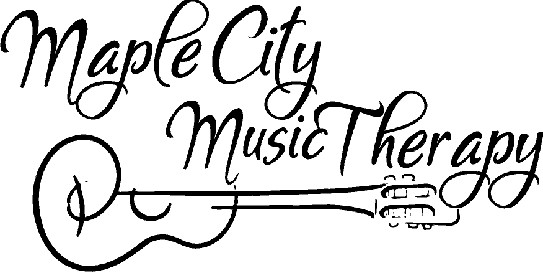Frequently Asked Questions

Below you will find responses to our most frequently asked questions. If you don't see your question answered, contact us!
All responses to the below questions are responses from our owner, Alicia Hubbard, MT-BC.
What is music therapy?
Music therapy is the use of music and music experiences by a trained professional (called a music therapist) to enable people to attain better physical, psychological, emotional, cognitive and/or spiritual health. It can also be used to aide in the teaching of academic concepts. Music therapy is implemented by a credentialed music therapist who has completed the proper coursework and examination.
How are music therapists trained?
There are at least three levels to the training and education of a music therapist. The first requirement is completion of an approved collegiate program with which the minimum degree requirement is a bachelor’s degree. The second requirement is a successful completion of a supervised internship. This internship can be done in several different settings across the country. The final requirement is a passing grade on the Board Certification Exam for Music Therapists. The CBMT is an independent body that established policies, procedures, and standards for board certification in music therapy. Further training in many areas is available through graduate studies and various, independent training facilities. Music therapists then recertify every 5 years by completing at least 100 credit hours in a wide variety of opportunities over the cycle.
Who do music therapists work with?
Music therapists work with people of all ages with a variety of needs. Some examples of people serviced by music therapists are:
Children, adolescents, adults and/or older adults with…
*Autism *Alzheimer’s
*speech impairments *developmental disabilities
*physical disabilities *psychiatric conditions
*emotional disorders *terminal illnesses
*Parkinson’s disease *behavioral problems
*Dementia *eating disorders
This is not a full list of all the variety of clients music therapists work with, but is a small list of some areas.
Where do music therapists work?
Almost everywhere that will welcome us! Music therapists can be found in homes, schools, hospitals, geriatric facilities, daycare centers, treatment facilities, hospices, private offices, mental health centers, forensic facilities, group homes, and early intervention programs around the world.
What do music therapists do?
Similar duties as other health professions, only through musical means. Assessments are used to develop goals and objectives that will relate to relevant areas of development. It is then through musical responses, planning of goal-oriented music sessions, implementation of those plans, and evaluation of a client’s progress that the music therapist uses musical experiences to work toward those goals and objectives.
What can be expected during a music therapy session?
During a music therapy session, many different music experiences may be utilized. Singing, improvisation, instrument play, choice making, movement to music, lyric analysis, composition, and performance, are all possible ingredients in the music therapy session plan. Every session and every experience in each session is planned and implemented for that particular group or individual, however may also be improvised on the spot if necessary. Because of this, no two sessions will be the same, though they may include similar experiences. What else can be expected during a session? Enjoyment! Not all aspects of music therapy are happy, enjoyable occasions, but the element of music and the success-oriented planning make music therapy sessions overall a pleasurable experience for most.
What is the difference between Music Therapy, Music Education and Music Entertainment?
Music Therapy has a primary goal to meet the needs of our clients using preferred music but not specifically related to teaching music or instruments. Instead, it is about engaging clients in music experiences to best help them outside of the music therapy space. A potential secondary goal may be related to musical knowledge if that helps to ultimately meet goals.
Music Education has a primary focus is to teach musical skills, music knowledge (of instruments, history and musical make-up) and musical behavior including reading music. Music educators may also have a secondary focus related to non-musical behaviors.
Music entertainment has a main focus of practicing and performing a specifically curated set list for a target audience for entertainment purposes.
Ask Your Question
maplecitymusictherapy@gmail.com
Connect with us via social media
Services
- Individual Therapy
- Group Therapy
- Music Classes
- Presentations
- Heartbeat Project
- Postpartum Music Therapy
Contact
maplecitymusictherapy@gmail.com
